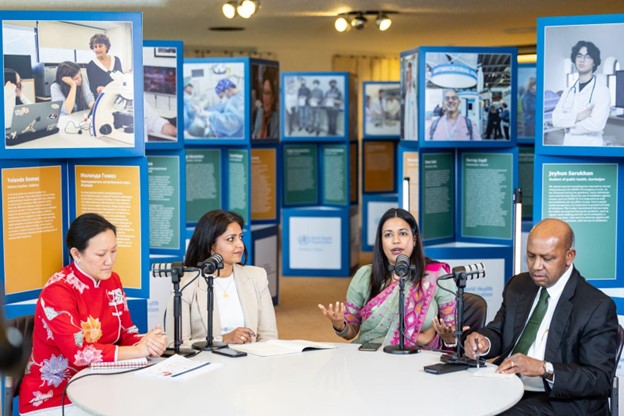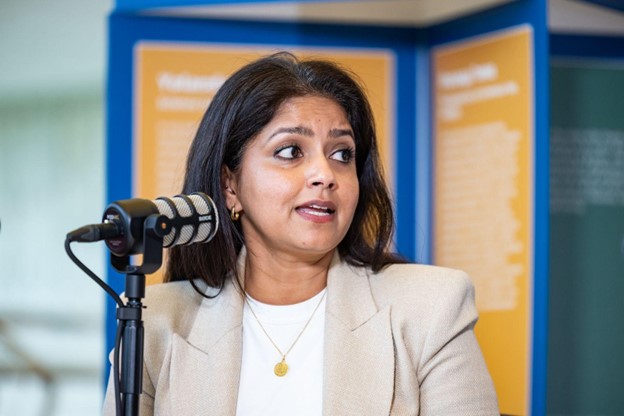
Photo ©WHO: Panelist during the social media Live moderated Q&A
During the World Health Assembly in Geneva, the Global Health Cluster (GHC) joined World Health Organization (WHO) colleagues in a live Q&A on social media to discuss delivering health care during ongoing health emergencies arising from conflicts around the world.
Dr Teresa Zakaria, Officer in Charge of the Humanitarian Interventions Unit under the WHE Department, provided statistics on the scale of humanitarian issues globally, pointing out that WHO is responding to 44 graded emergencies of scale and complexity that require a significant response from the organization. Highlighting the need for careful prioritization and proper risk assessment in conflict zones, she said that at the onset of conflict or when dynamics change, "we need to do a proper risk assessment" to quantify and qualify health problems faced. Dr Zakaria stressed that there is no such thing as a blanket measure, and a coordinated partnership with other organizations is critical to reach more people who need healthcare.

Photo ©WHO: Andrea King, Technical Officer, Global Health Cluster
Ms Andrea King, GHC Technical officer, emphasized the complex coordination required in conflict zones, citing the example of Gaza, where over 60 health partners are responding to humanitarian health needs. “We have organizations with expertise in emergency trauma care working alongside national NGOs serving the community for years. As the Cluster, we ensure these 60 partners work together to provide a full package of agreed-upon health services. "
Dr Boureima Sambo, WHO representative to the Democratic Republic of Congo, detailed the country's ongoing health challenges, including attacks on health facilities and staff in conflict-affected areas. He explained that in some zones impacted by war, "our health centres have been transformed into military barracks instead of providing healthcare. These conditions, he said, put medical workers in danger, forcing them to flee conflict zones and leaving communities without access to medical services.
Despite the challenges outlined, all speakers emphasized the importance of coordinated humanitarian action and partnerships between organizations to prioritize health and save lives.
